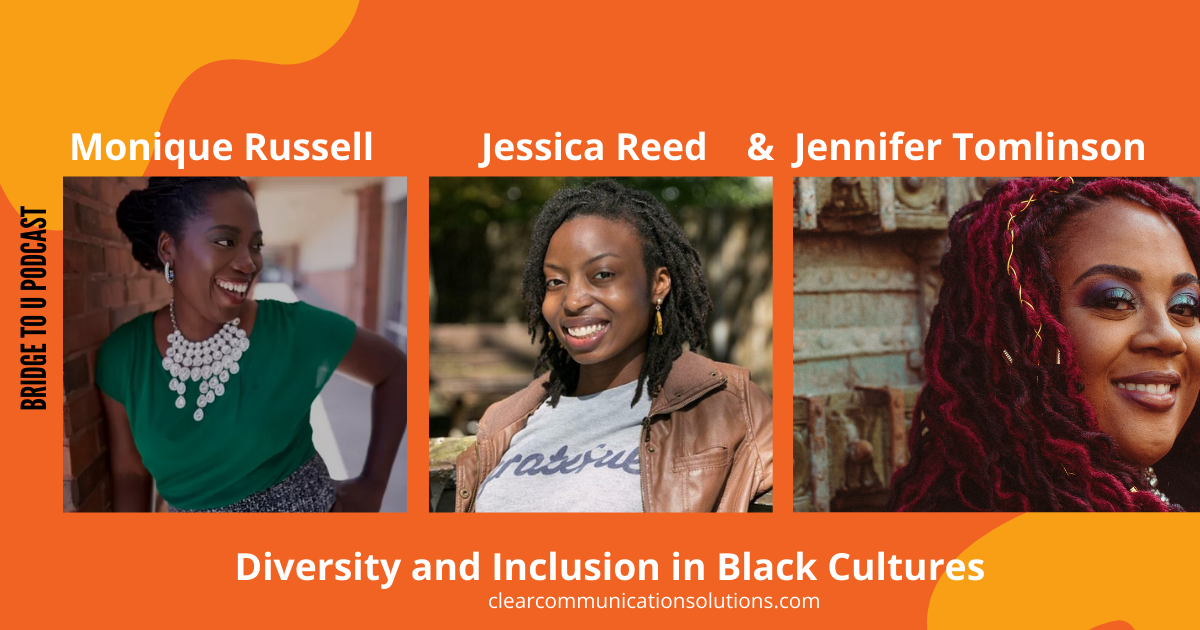
I just had to bring these ladies back for a joint episode to talk about Diversity and Inclusion in Black cultures and when you listen to it you will understand why. What’s your exposure to Diversity of Blackness? Do you know the difference between a stereotype and generalization?
We talked about what trauma response looks like in Black cultures. We talked about unity, understanding, healing, and how to experience your country of origin in a positive way if your experiences have been colored with negative ones.
Jessica Reed is a writer, youth educator, and proud ice cream lover from Detroit, Michigan. Jennifer Tomlinson is a college Professor of African American Studies and Interim Dean of Learning Support.
Show Notes
Colorism, elitism, classism is a trauma response in Black Cultures.
Elitism is the belief that you are better than someone because of the power system you have access to. Colorism is the belief that you are better because you have a lighter or whiter shade of skin color. Classism is the belief that you are better because of economic elevation.
In the United States, elitism permeated the black culture and there were differences between the north and south. When the National Urban League came out with a pamphlet for how black people should carry themselves to be more respectable and accepted, according to Jessica, it was an example of how elitism revealed itself.
We have to learn and understand history in order to move forward. Learn the difference between a generalization and a stereotype. A stereotype is an opinion about a generalization. Generalizations aren’t bad. Adding stereotypes to a generalization is where it becomes problematic.
Snippet from Jessica, Jennifer, and Monique:
“I believe in the power of relationships. When you meet someone Black from a different culture, lean in and go into more conversations. We may get it wrong but we have to start somewhere. Social media can be a beast in the worst way but it can be a powerful connector. We should seek out people whose stories look different from their own. Maximize the opportunities to learn about people in the diaspora.” (Jessica Reed)
“Connection with others is a form of self-love. If we are not open to connecting, we may miss out on the richness of life. Ask, how can I love myself by forming connections with others?”
“I did not have exposure to the diversity of blackness, but I had exposure to the pride of being black.”
“Why do we misplace accountability of trauma on other Black people? We don’t have to hate each other.”
Diversity and inclusion among Black cultures is an intentional development every DEI consultant, and leader must consider. Listen to the episode and share your biggest insight or learning moment.
Connect with Jennifer: LinkedIn | Instagram | Website| Youtube
Connect with Jessica: Instagram | Website
Or email with feedback or questions: leadership@clearcommunicationsolutions.com
Listen to other episodes at Podcast Page.
